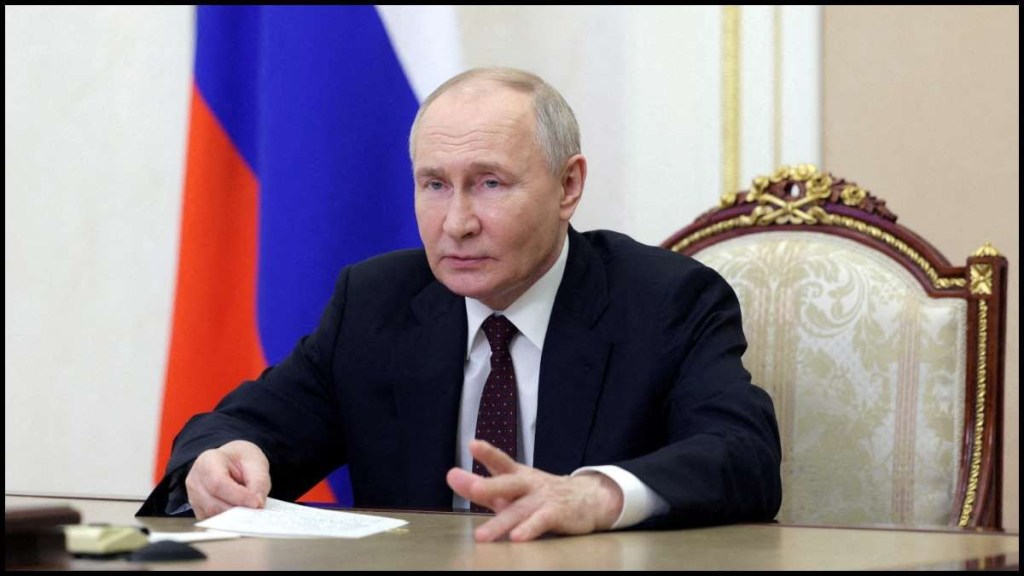Amid orders for the exercise of non-strategic nuclear forces, Vladimir Putin took oath as the President of Russia for the 5th time. The inauguration comes two days ahead of Victory Day on May 9.
India was represented by Ambassador Vinay Kumar. According to sources, “due to the ongoing General Elections in India, there was no possibility of any high-level visit to attend the swearing-in ceremony.”
He was sworn in as the Russian president for the fifth time during a ceremony in the Kremlin at noon Moscow time on Tuesday (May 7, 2024). The ceremony was held for the eighth time in the contemporary history of Russia.
After arriving, he walked through the palace corridors to the ornate Saint Andrew Hall, where he took the presidential oath and made a brief address to his country.
Government officials and foreign diplomats in Moscow have been invited to the ceremony, including French Ambassador Pierre Levy, who too was invited to attend.
His Journey So Far
Vladimir Putin’s journey to his sixth inauguration as Russia’s president has been marked by a series of victories and controversies. Since his initial ascent to the presidency in 2000, Putin has navigated the complexities of Russian politics, securing victories in elections that have been both celebrated and contested.
According to information in the public domain, Putin has already taken his oath of office four times. Back in 2000, as a 47-year-old candidate he received the support of 52.94 percent of Russians, in 2004 – of 71.31 percent, in 2012 – of 63.6 percent and in 2018 – of 76.7 percent.
And, during the March 2024 elections, Putin, who is now 71 years old, was supported by record-high 87.28 percent for a six-year term.
As he took the oath of office for the sixth time, Putin’s presidency reflects his enduring influence over Russian politics. From his early promises of stability and security to his latest triumph at the ballot box, Putin’s leadership has been characterized by a mixture of popularity and criticism, both at home and abroad.
His latest victory, with a record-high percentage of the vote, underscores his continued dominance in Russian politics. However, it also highlights the challenges facing Russia, both domestically and on the world stage.
Amidst diplomatic tensions and economic uncertainties, Putin’s inauguration serves as a reminder of the complexities of governance in Russia. While his popularity remains high among many Russians, the absence of representatives from key European countries reflects the strained relations between Russia and the West.
Amid soured tensions over the conflict in Ukraine, European nations including Germany, Czech Republic and Poland indicated that they will not send representatives to attend the ceremony.
Challenges He Faces
As Putin embarks on his sixth term, the world watches closely, aware of the challenges and opportunities that lie ahead. From ongoing conflicts in Ukraine to economic sanctions imposed by the West, Putin faces a range of issues that will shape his presidency in the years to come.
Yet, for now, Putin remains firmly in control, his leadership unchallenged within Russia.

